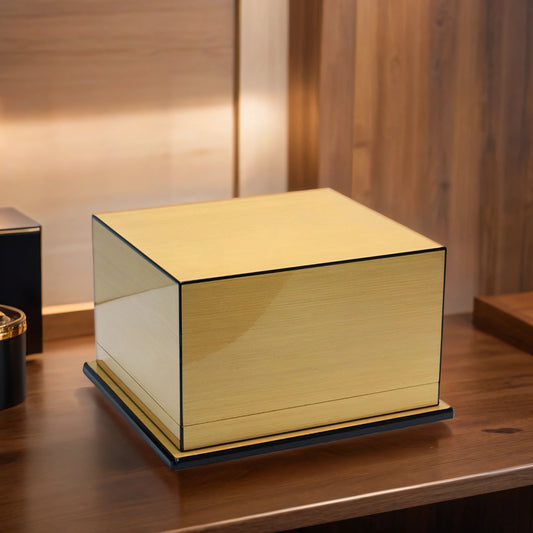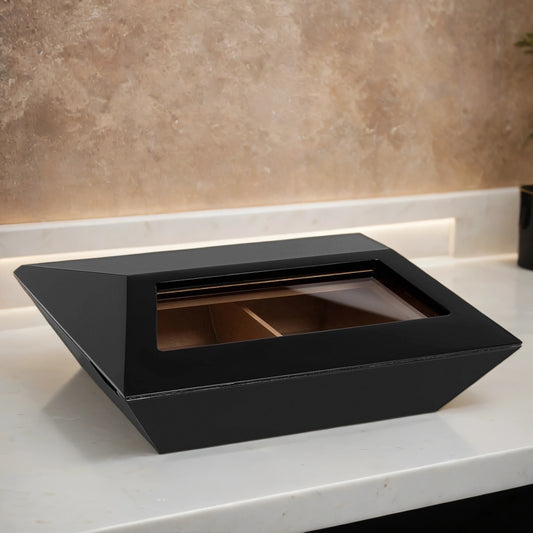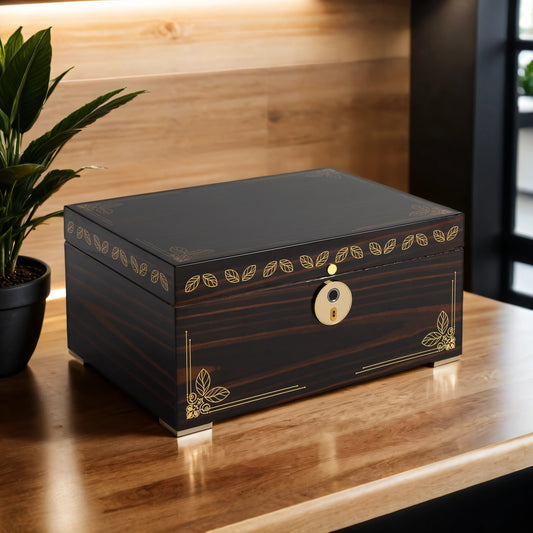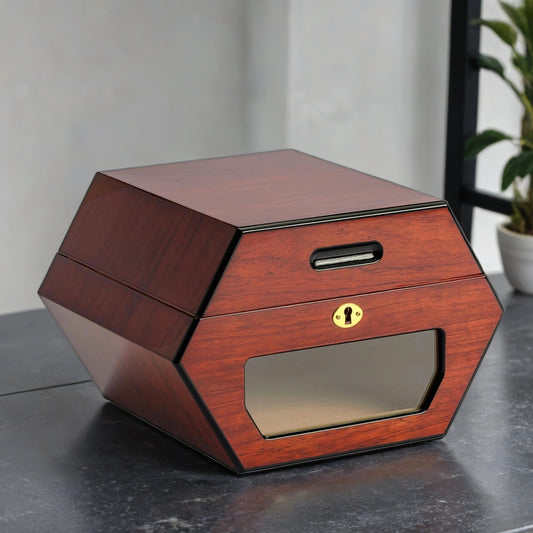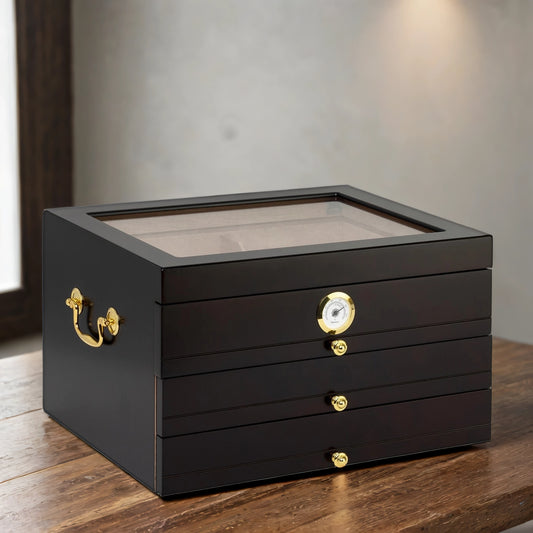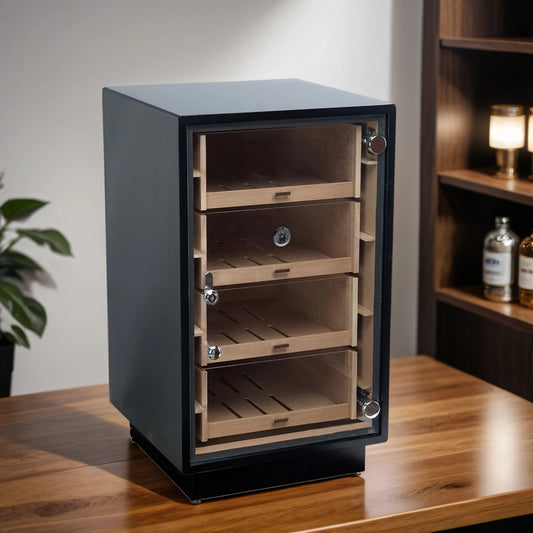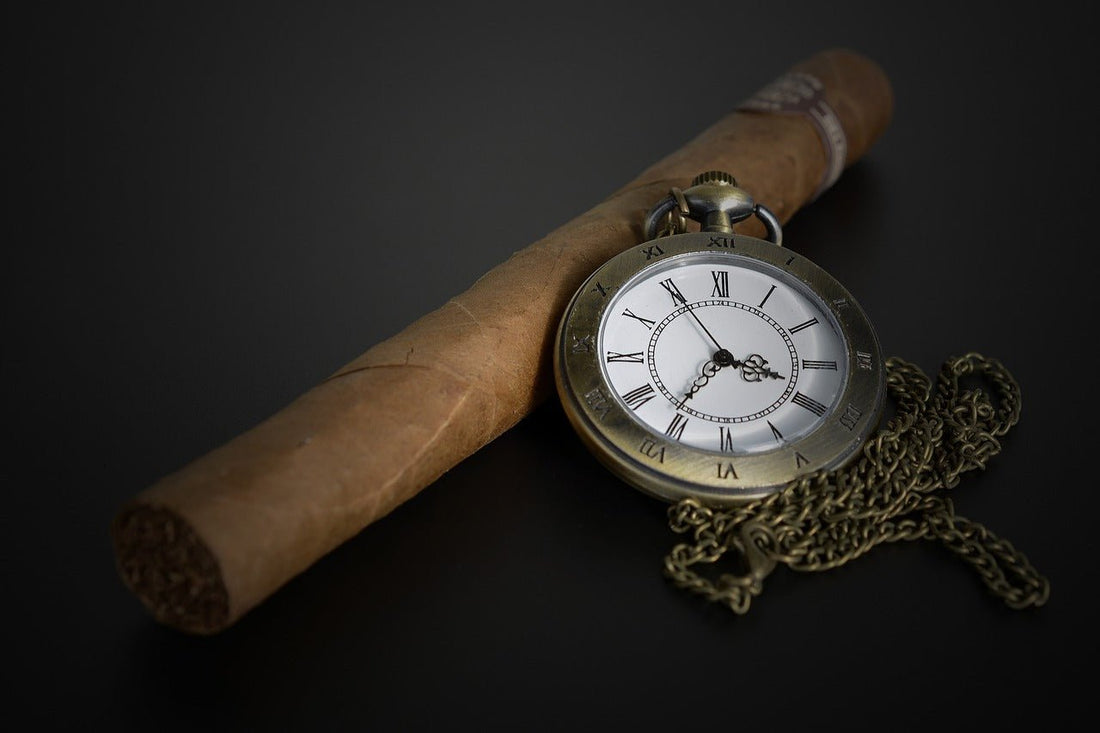
Best Humidity for Cigars: The Definitive Guide
The best humidity for cigars is between 65 and 70 percent relative humidity (RH) at about 68 degrees Fahrenheit. This range keeps your cigars flavorful, supple, and safe from drying out or molding. It is the sweet spot that prevents your prized sticks from turning brittle or soggy. Think of it as keeping your cigars in “spa day” mode instead of “desert or swamp” mode.
That said, some nuance is needed. Many modern cigar smokers prefer a slightly lower range of 62 to 68 percent, depending on the cigar type, local climate, and whether they are aging or actively smoking their collection. This guide explains why humidity matters, how to maintain the perfect balance, and what to do if your humidor starts acting up.
What Is Relative Humidity?
Relative humidity, often written as RH, is the measure of how much moisture is in the air compared to how much it can hold at a given temperature. When the air reaches 100 percent relative humidity, it means it is fully saturated and cannot hold more moisture.
Cigars thrive in an environment that mimics tropical air, where the humidity is high enough to keep the tobacco supple but not so high that it causes mold or swelling. In simple terms, RH tells you how comfortable your cigars feel inside their home.

How Temperature and Humidity Work Together
Humidity and temperature must always be balanced. As temperature increases, the same RH value will hold more moisture. For example, 65 percent humidity at 70 degrees Fahrenheit is wetter than the same humidity at 60 degrees. Keep your cigars at 65 to 70 degrees Fahrenheit for consistent results.
Avoid exceeding 72 degrees, particularly if humidity is also high. In cooler spaces such as basements or cellars, cigars adjust to changes more slowly, so give them time to acclimate before smoking or rebalancing your humidor.
Why Humidity and Temperature Matter
Cigars are hygroscopic, which means they naturally absorb and release moisture from the surrounding air. Proper humidity keeps the tobacco’s essential oils intact, which directly affects flavor and aroma. Too little humidity dries these oils out, making cigars taste harsh and causing the wrappers to crack. Too much humidity swells the leaves, leading to tight draws and uneven burns.
Temperature is just as critical. Warmer air holds more moisture, which means that even the same humidity level can feel “wetter” as temperatures rise. High heat and humidity together create ideal conditions for mold and tobacco beetles. Keeping cigars between 65 and 70 degrees Fahrenheit at about 65 percent RH helps avoid these problems while maintaining ideal smoking conditions.
The traditional “70/70 rule” (70 percent humidity and 70 degrees Fahrenheit) still works, but many enthusiasts today prefer slightly cooler and drier settings for better burn and flavor. Habanos S.A., the maker of Cuban cigars, recommends a range of 65 to 70 percent RH at 61 to 64 degrees Fahrenheit for their cigars.

Recommended Humidity by Situation
Here is a helpful chart to guide your target humidity levels based on your collection and environment:
| Situation | Recommended RH | Reason | Notes |
|---|---|---|---|
| General storage | 64–66% | Balanced and stable | Ideal for most cigars |
| Cuban cigars | 62–65% | Prevents spongy texture | Enhances burn quality |
| Long-term aging | 65–68% | Preserves oils over time | Monitor regularly |
| Dry climate | 65–68% | Offsets moisture loss | Use quality humidifiers |
| Humid climate | 62–65% | Prevents mold and swelling | Keep room temperature steady |
What Real Cigar Smokers Prefer
Cigar communities often agree that a lower humidity offers a better experience. Many cigar lovers find that 65 percent RH works perfectly for most cigars, while Cuban cigars perform better around 62 percent. Cigars stored above 70 percent humidity often burn unevenly or taste dull, while those kept between 63 and 66 percent provide a smoother draw and cleaner burn.
This preference shift toward lower humidity is not just a trend; it reflects how cigars respond better when not overly moist. The tobacco burns more evenly, the flavors are sharper, and the overall experience feels more refined.
How to Adjust Humidor Humidity
When Humidity Is Too High
- Reduce humidification sources by temporarily removing extra packs or sponges.
- Briefly open the humidor to release excess moisture.
- Add a small amount of silica gel designed for cigars to absorb water vapor.
- Lower the room temperature slightly to stabilize humidity.
- Use a dry cedar box (known as “dry boxing”) for 12 to 24 hours to help cigars shed extra moisture.
When Humidity Is Too Low
- Make sure your humidifier is properly filled with distilled water or propylene glycol solution.
- Place a clean, lightly damp sponge inside the humidor on a plastic dish to add moisture.
- Use two-way humidity packs at 69 or 72 percent to gradually raise humidity.
- If dryness persists, re-season the humidor to restore its wood’s moisture retention.
Always make small adjustments and wait a day or two before making further changes. Rapid swings in humidity can damage cigars and create more problems than they solve.

Common Humidity Problems and Solutions
Inconsistent humidity is one of the most common issues cigar owners face. It often comes down to an uncalibrated hygrometer or a poor humidor seal. Use a 75 percent calibration kit or a salt test to ensure your readings are accurate, and check that your humidor closes tightly.
If cigars are burning unevenly, feeling tight, or tasting bitter, they may be over-humidified. Let them rest outside the humidor for a short period or reduce the humidity level by a few points. If your cigars crack easily or burn too hot, they are likely too dry and need gradual rehydration.
White, powdery specks that wipe away easily are usually “plume,” a sign of natural aging. Green or fuzzy spots, however, indicate mold, which means humidity is too high and must be corrected immediately. Small pinholes in the wrapper are a sign of beetle infestation, caused by heat and excess humidity, and require lowering both immediately.
Expert Tips for Consistent Results
- Rest newly shipped cigars for at least two to four weeks before smoking to let them adjust to your environment.
- In climates with big temperature swings, consider resting cigars for up to ninety days before smoking.
- Practice “dry boxing” by placing cigars in a clean cedar box for twelve to forty-eight hours before smoking if they feel damp.
- Check humidity weekly, and more frequently during summer or when adding new cigars to your humidor.
- Keep cigars spaced apart to allow proper air circulation.
- Make sure the lid of your humidor closes with a soft seal to maintain stability.
Consistency, not perfection, is the secret to a humidor that performs well all year long.
Final Thoughts
Mastering cigar humidity is what separates a casual collector from a true connoisseur. When humidity and temperature are properly balanced, your cigars reward you with perfect burns, complex flavors, and a luxurious draw every time. Maintain your humidor like a craftsman tends his tools: with patience, precision, and a little pride, and every smoke will feel like a celebration of doing things right.

Frequently Asked Questions
What is the best humidity for cigars?
The best humidity for cigars is generally between 64 and 66 percent at a temperature of 65 to 70 degrees Fahrenheit. Some smokers prefer slightly lower humidity for Cuban cigars or in humid regions.
Is 62 percent too low?
No. Many aficionados find that 62 percent provides a clean, even burn, especially for Cuban cigars, which tend to be more sensitive to moisture.
Is 72 or 75 percent humidity too high?
Yes. At those levels, cigars are more likely to develop mold or attract beetles. Keep humidity closer to 65 to 68 percent for safety.
What temperature should I store cigars at?
Maintain 65 to 70 degrees Fahrenheit. Temperatures above 72 can compromise flavor and texture and may cause beetles to hatch.
How long should cigars rest after shipping?
Two to four weeks is usually enough, though ninety days is ideal for cigars that have been exposed to temperature changes during transit.
Do Cuban cigars need different humidity?
Yes. Cuban cigars have thinner wrappers and respond best to 62 to 65 percent humidity to maintain firmness without over-softening.

